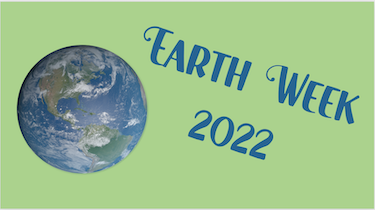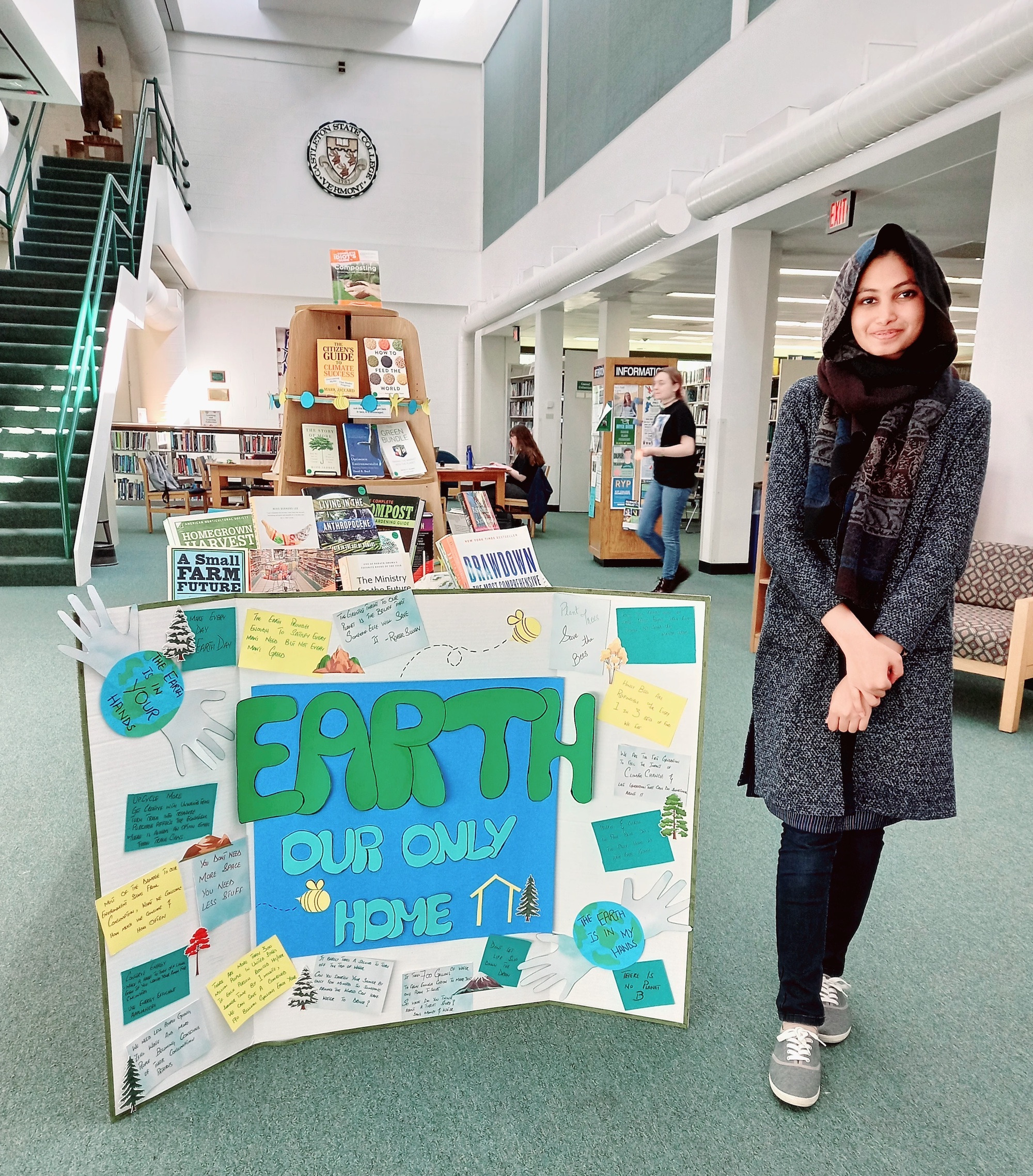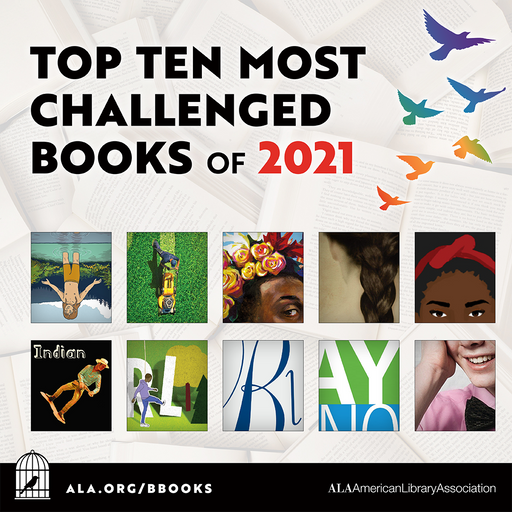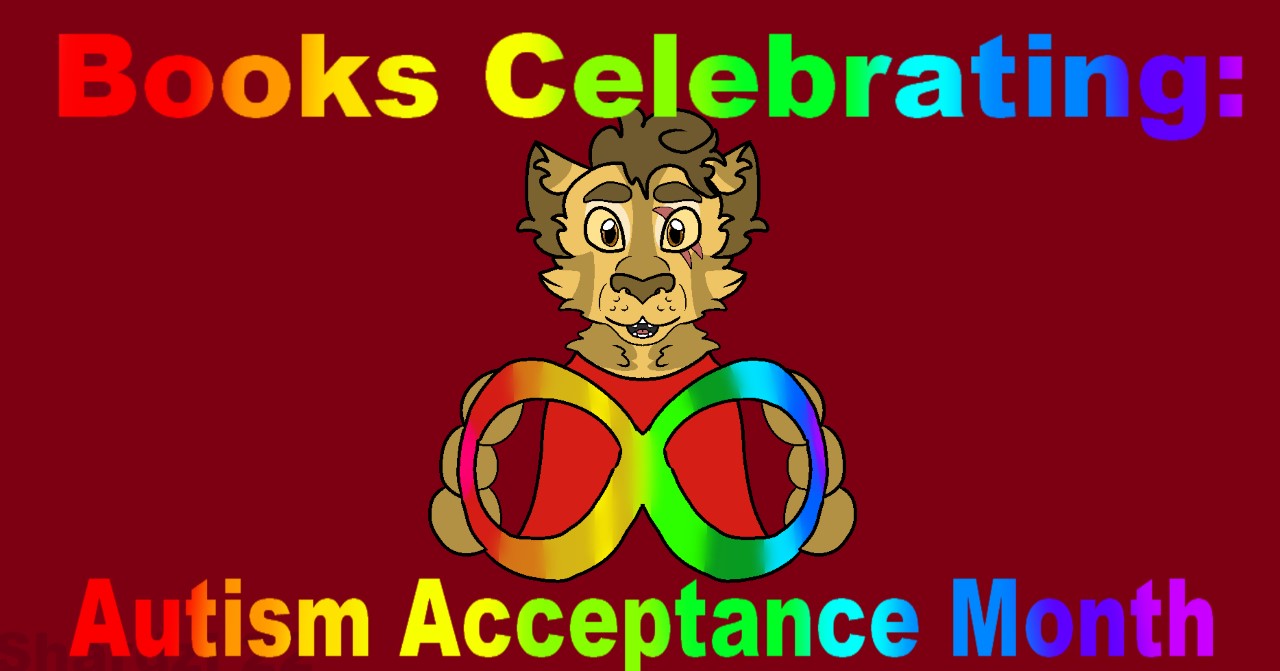
Castleton is celebrating this Earth Week with the theme of Food Sustainability and Climate Change. See all the CU Earth Week events here.
The Library is promoting lots of relevant reading and other learning materials. See our Earth Week guide focusing on food waste. See the list of related books on display and come check some out! Of course we have many, many more books on topics like climate change, sustainable agriculture, humans’ relationships with animals and plants, toxicology, the natural world. Read all about it and appreciate our Mother Earth even more.
The Library’s Earth Week book display has special artwork this year from international student Aurooba Shafquat from Pakistan, pictured below. This is what Aurooba has to say about this project:
We exist because of the earth we have. If we damage it, we damage ourselves, we darken our future, we give our children a life they would not want because for all their lives they would have to struggle for things as minimal as clean air to breathe or clean water to drink. This month the library has a book display and poster to spread awareness to the students of Castleton about the environment and how we can save it. The poster has different messages for every one, do spare a few minutes to come and read what the poster says to you.



